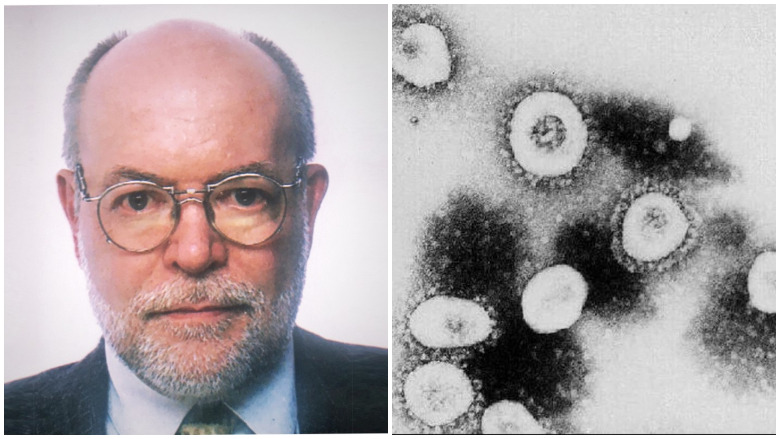
Knut Wittkowski is a researcher who has argued against lockdowns to deal with the COVID-19 pandemic because he believes the nation needs to reach “herd immunity.”
In an interview with Spiked on May 15, 2020, Wittkowski said,
When the whole thing started, there was one reason given for the lockdown and that was to prevent hospitals from becoming overloaded. There is no indication that hospitals could ever have become overloaded, irrespective of what we did. So we could open up again, and forget the whole thing. I hope the intervention did not have too much of an impact because it most likely made the situation worse.
Wittkowski also argues that COVID-19 isn’t dangerous “unless you have age-related severe comorbidities. So if you are in a nursing home because you cannot live by yourself anymore, then getting infected is dangerous.” (Almost 40% of COVID-19 deaths nationwide are concentrated in nursing homes and assisted living facilities, at least in the states reporting the data, a non-profit foundation’s analysis found. You can read an exploration of that, including the percentage of deaths for each state that occurred in such facilities, here.)
You can read Wittkowski’s full interview with Spike here.
He told the outlet that the costs of lockdowns including rising suicide and domestic violence rates as well as people not going to hospitals for other ailments when they should. (A study in JAMA Psychiatry did find that “the potential for adverse outcomes on suicide risk is high” due to actions taken to prevent COVID-19, such as lockdowns. A New York Times article reported domestic violence was rising due to COVID-19 worldwide. Some cities have reported surging domestic violence numbers during the pandemic.)
Heavy has asked Wittkowski for an interview through his company website.
Who is Knut Wittkowski?
Here’s what you need to know:
1. Rockefeller University Released a Statement Distancing Itself From Knut Wittkowski
On April 13, 2020, The Rockefeller University, where Wittkowski has worked, released a statement saying, “The opinions that have been expressed by Knut Wittkowski, discouraging social distancing in order to hasten the development of herd immunity to the novel coronavirus, do not represent the views of The Rockefeller University, its leadership, or its faculty.”
The statement continued, “Wittkowski was previously employed by Rockefeller as a biostatistician. He has never held the title of professor at Rockefeller.”
2. YouTube Deleted a Video Featuring Wittkowski, Reports Say
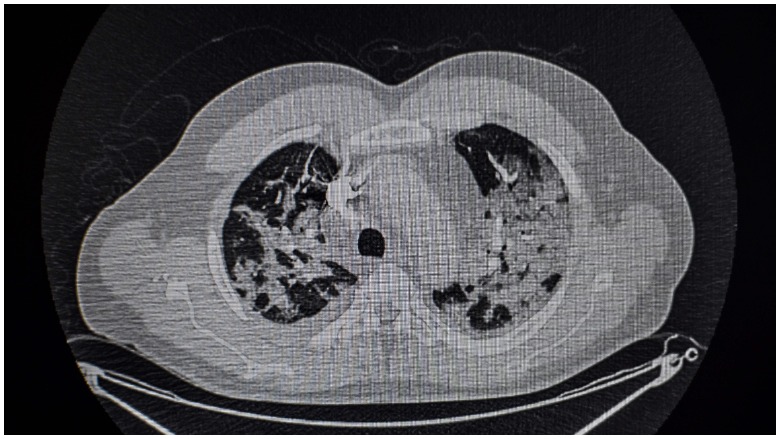
GettyThis scan shows an advanced coronavirus infection in the lungs.
The New York Post describes Wittkowski as formerly affiliated with The Rockefeller University and says YouTube caused previous controversy by deleting a video of him talking about coronavirus that was viewed more than 1 million times. The article calls Wittkowski a “ferocious critic of the nation’s current steps to fight the coronavirus” and says he is proponent of herd immunity as an approach to fending off COVID-19.
According to The Post, he said in the deleted video: “With all respiratory diseases, the only thing that stops the disease is herd immunity. About 80% of the people need to have had contact with the virus, and the majority of them won’t even have recognized that they were infected.” The Post reported that Wittkowski is a “German national” who “flouts New York’s coronavirus restrictions, walking around his Upper East Side neighborhood maskless and eating in underground restaurants.”
3. Wittkowski Authored a Research Article on COVID-19
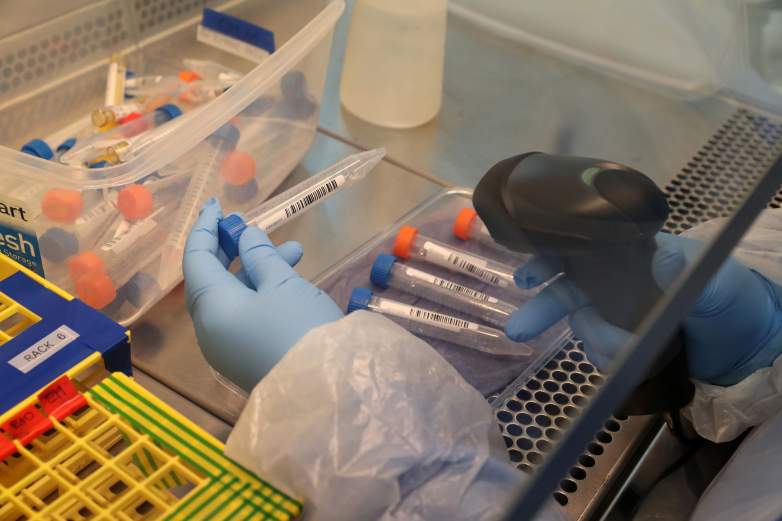
Photo by Andrew Milligan – WPA Pool/Getty ImagesTechnicians scan test tubes containing live samples of the virus.
Wittkowski authored a March 28, 2020 research study called “The first three months of the COVID-19 epidemic: Epidemiological evidence for two separate strains of SARS-CoV-2 viruses spreading and implications for prevention strategies.” You can find it here. It’s a preprint, which means it hasn’t yet been peer reviewed. Click on review PDF to see the full study.
This article says:
About one month after the COVID-19 epidemic peaked in Mainland China and SARS-CoV-2 migrated from China westward to Europe and then the U.S., the epidemiological data begin to provide important insights into the risks associated with the disease and the effectiveness of intervention strategies. Like other respiratory diseases, including the 2003 SARS epidemic, the virus remains only about two months in any given population, yet the peak incidence and the lethality can vary
He found that the data suggested there were at least two strains of COVID-19 in the world. The study’s competing interest study says, “Dr. Wittkowski is currently the CEO of ASDERA LLC, a company discovering novel treatments for complex diseases from data of genome-wide association studies. One of these treatments could potentially be effective against virus (including coronavirus) diseases.”
The study argues:
Lockdowns can be effective during the month following the peak incidence in infections, when the exponential increase of cases ends. Earlier containment of low-risk people merely prolongs the time the virus needs to circulate until the incidence is high enough to initiate ‘herd immunity.’ Later containment is not helpful, unless to prevent a rebound if containment started too early.
The article gives this background for Wittkowski:
Dr. Wittkowski received his PhD in computer science from the University of Stuttgart and his ScD (Habilitation) in Medical Biometry from the Eberhard-Karls-University Tübingen, both Germany. He worked for 15 years with Klaus Dietz, a leading epidemiologist who coined the term ‘reproduction number,’ on the Epidemiology of HIV before heading for 20 years the Department of Biostatistics, Epidemiology, and Research Design at The Rockefeller University, New York. Dr. Wittkowski is currently the CEO of ASDERA LLC, a company discovering novel interventions against complex (incl. coronavirus) diseases from data of genome-wide association studies.
4. Wittkowski’s Background Includes Research Into HIV/AIDS

In 2008, the WHO reports that HIV/AIDS was the 6th most deadly disease in the world killing around 1.78 million people world wide. The small green spots, which you can see above, attack the helpful white blood cells that allow the body to repel diseases and sicknesses.
As of 2009, the Center for Disease Control reported that there were 1.1 million people in the United States currently infected with AIDS. While there is no cure yet, new advances in drugs have made it possible for people with access to the medication to live longer and healthier lives.
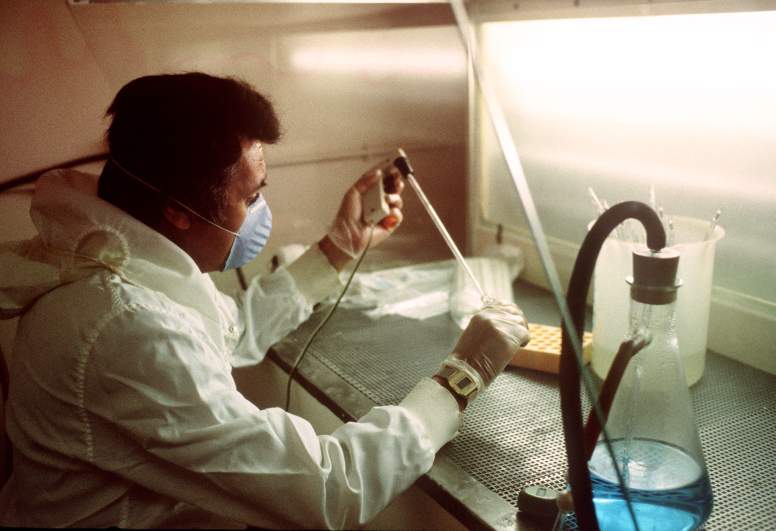
GettyProfessor Jean-Claude Chermann works on April 25, 1984 in the laboratory of research on the AIDS virus of the Institut Pasteur in Paris.
On LinkedIn, Wittkowski says he is chief executive officer/founder of Asdera, LLC in New York. “ASDERA develops and out-licenses IP for novel drugs from genetic data. A drug to prevent mutism in autism was out-licensed to Q BioMed (QBIO). Now, ASDERA is seeking partners to commercialize a class of treatments (pat. pending) to improve autophagy and reduce inflammation in age-related conditions including metastatic, neurodegenerative, cardiovascular, and metabolic diseases,” he wrote.
He was at The Rockefeller University in New York in the position of “Head, Biostatistics, Epidemiology, and Research Design, Center for Clinical & Translational Science” and was a senior research associate there, since 1998, according to his LinkedIn page. He was also a “biometrician” at the same university.
He’s been co author on studies for things like “Statistical Applications in Genetics and Molecular Biology.”
Before that he was a consultant for New York Academy of Medicine. He was co-author on a research article about reporting sexual risk behavior for HIV.
Wittkowski also lists being a guest researcher for the Centers for Disease Control for six months in the 1990s in the division of HIV/AIDS prevention and he was an assistant professor at the University of Tuebingen for four years.
He also served as a visiting professor for the University of Waterloo, Department of Statistics and Actuarial Sciences and Columbia University in the City of New York. He was an associate at the HIV Center for Clinical and Behavioral Studies for less than a year in 1995, and was co-author of an article that dealt with “The protective effect of condoms and nonoxynol-9 against HIV infection.”
Wittkowski was at the University of Tuebingen for 10 years as a postdoctoral research associate and research associate. He received teaching accreditation at that university in medical biometry. He received a PhD in computer science from the University of Stuttgart in the 1980s, according to his LinkedIn page.
Cindy Lu, director at Biogen, wrote an old LinkedIn recommendation for Wittkowski that reads, “Dr. Wittkowski is very knowledgable, nice and easy to collaborate. Always understand your needs and seek ways to work the best for you. A great professional and a great man!”
One paper authored by Wittkowski on HIV/AIDS says, “It has been recently advocated that avoiding partners who may be at high risk of carrying HIV provides 5000-fold better protection against HIV infection than usage of condoms. In this paper, it is demonstrated that this guideline is largely based on unrealistic assumptions.” See more of his publications here.
5. Experts’ Views on Herd Immunity Vary
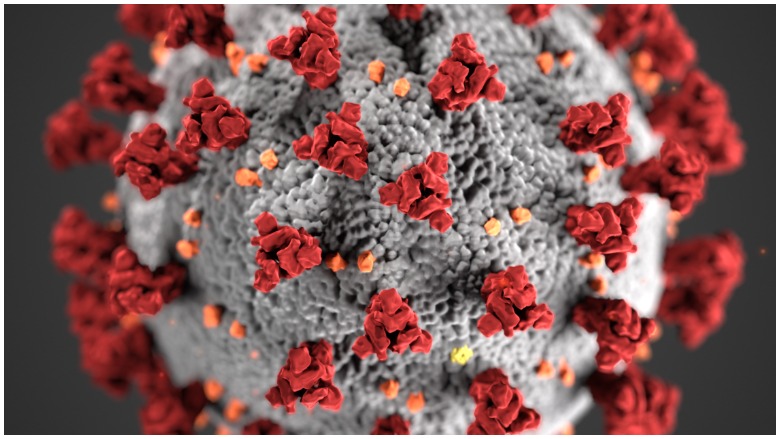
Wikimedia CommonsCoronavirus.
Heavy reached out to Sciline, which connects journalists with experts on COVID-19, to ask about other experts’ views on herd immunity and quarantining, and Sciline sent back links to round ups of expert quotes on the topics.
One Sciline article reads: “What is herd immunity and what portion of the population needs COVID-19 antibodies in order to achieve it?” (Read the full paper here. It also deals with expert views on antibodies.)
“Herd immunity refers to having enough immune individuals that a virus cannot spread rapidly and infect large numbers of people. The necessary threshold for effective herd immunity depends on the contagiousness of the virus: for example, measles is extremely contagious, and thus at least 90% of people need to be vaccinated to prevent outbreaks. Experts have estimated a herd immunity of 60-70% would probably provide benefit against COVID-19. The United States is a long way from this; even with 1 million proven cases, if those tested account for only 10% of all cases, the total number of individuals with demonstrated immunity would still be less than 10% of the US population.”
— John Williams, MD, Professor of Pediatrics, University of Pittsburgh; Director, i4Kids; Chief, Pediatric Infectious Diseases, UPMC Children’s Hospital of Pittsburgh (Posted 5/6/2020)
“Population immunity—or herd protection—describes the phenomenon of enough people in a community becoming immune to a germ so that when the germ is introduced, say from someone traveling from ‘outside the herd,’ the germ doesn’t take hold but meets a dead end because of immunity in most of the people. We have no way of knowing yet how many in a population have to be immune or partially immune to the virus to achieve some type of protection, but we do know that as more and more people become immune, the number of individual people that are infected for every one case of COVID-19 will go down considerably. Take chickenpox as an example. Imagine a class of 4th graders. There are 15 students in the class, all of whom have been vaccinated for chickenpox. If a new student comes to the school and happens to have chickenpox, the virus has nowhere to go because of the immunity of the classroom. No outbreak occurs, and all is well. But what If only 12 students have been vaccinated? Now that one original case will likely become 4 cases. This is why population immunity is so important – it’s the most surefire way to stop germs in their tracks.”
— C. Buddy Creech, MD, MPH, Director, Vanderbilt Vaccine Research Program, Associate Professor, Pediatric Infectious Diseases, Vanderbilt University School of Medicine and Medical Center (5/6/2020)
“This depends, but usually more than 70% of the population needs antibodies to achieve herd immunity.”
— Arturo Casadevall MD, PhD, Chair of Molecular Microbiology & Immunology, Bloomberg Distinguished Professor, Johns Hopkins School of Public Health (5/6/2020)
“We’re trying to obtain something called herd immunity – the concept that there are enough people in a group of people that are immune to a disease. Those who haven’t yet had the disease could keep themselves from getting infected because everybody around them has already had it and are no longer going to be infectious. And so there’s calculations around how this is measured that has to do with the transmission of the disease itself… Generally, for this disease – for COVID-19 – we’d probably want to see between 60 to 70% of the population being immune before we can say we’re comfortable. I think others may give you other numbers, but that’s the general sense.”
— Nahid Bhadelia, MD, MA, Medical Director, Special Pathogens Unit, Boston University School of Medicine (Posted 5/7/2020)
READ NEXT: California Doctor Criticizes State’s COVID-19 Approach